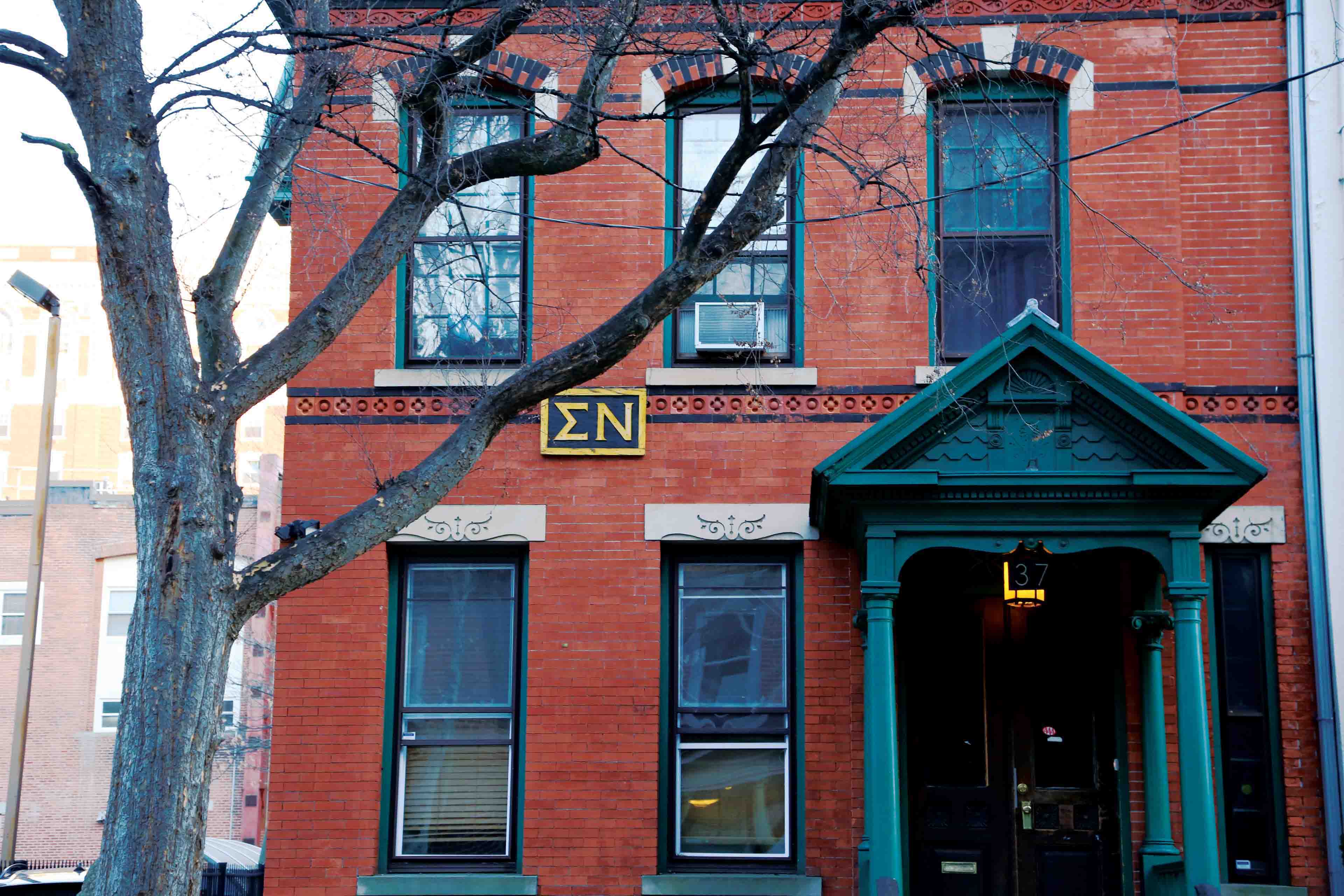
YaleDailyNews
Sports teams are some of the closest-knit communities on campus — athletes are known to live together, eat together and, of course, play together for hours each day. Several fraternities at Yale, so called “sports frats” that share special relationships with certain teams, give athletes another option for bonding with their teammates and others.
Four Yale fraternities — Delta Kappa Epsilon, Alpha Delta Phi, Sigma Nu and Zeta Psi — are known for recruiting heavily from sports teams. DKE and Zeta recruit heavily from the football team, ADPhi recruits from the lacrosse team and Sig Nu draws many members from the soccer, tennis and golf teams.
Other teams at Yale socialize at sports houses rather than fraternities. And some coaches, including the coaches of the men’s hockey and baseball teams, have even barred their athletes from joining fraternities. But for teams that do have ties with specific fraternities, these relationships can play an influential role for new teammates.
“As a recruit you’re taken to these places … Every football recruit is brought to DKE, every soccer recruit is brought to Sig Nu, the coaches are aware of this, they want it to happen, it’s a recruiting tool for a lot of the teams,” said Kevin Bendesky ’19, the president of Sig Nu, a former varsity soccer recruit and a sports columnist for the News. “You’ll have the team meal, you’ll take the bus back, you’ll go back to the frat or the house, but for me I went back to the frat, I was at Sigma Nu … It was one of the best nights of my life and immediately ingrained in my Yale experience.”
Senior Associate Athletic Director of Student Services Brian Tompkins, who coached the men’s soccer team until 2015, allowed team members to join fraternities during their first year. But Kylie Stannard, the head coach of Yale’s men’s soccer team since 2015, requires that his players wait until their sophomore year to join fraternities.
Stannard told the News that he wants his students to prioritize academics and athletics before branching out into other time-consuming activities, like the fraternity rush process.
“Being a good student and a Division I athlete at Yale are both extremely rigorous and time-consuming,” he explained. “Once they have had the necessary time to find a good balance of their academic desires and soccer, they are better prepared to spend time on extracurricular opportunities and be successful in all areas.”
Many members of the football team, however, join Zeta and DKE during their first year. President of DKE Nicholas Hardy ’18 declined to comment on the community role DKE plays for members of the football team.
Asked about the role fraternities play in building community for the football team, head coach Tony Reno told the News that “the community and brotherhood I am most concerned about during the season is our Team 145,” and that this is where the team’s focus has to be.
Ryan Oak ’19, the vice president of Zeta, explained that fraternities like his offer athletes a place to build on their relationships away from the field, court or pitch. He added that fraternities, including those with heavy sports presences like Zeta’s, provide an “outlet” for athletes to meet nonathlete members “in ways that would otherwise not be possible.” In his view, this intermixing fosters the development of a more unified student body.
At least within Sig Nu, Bendesky stressed there is no dichotomy between athletes and nonathletes.
“When you’re in Sigma Nu, you could walk around and spend two hours trying to figure out who is the athlete and who isn’t it,” he explained. “It’s not a symbiotic relationship [between athletes and everyone else], we’re one organism.”
The president of ADPhi declined to comment for this story.
Students are divided on whether they believe there is a need for sports teams to funnel into specific fraternities for the sake of community. Of 10 students surveyed in Bass Café, five told the News they understand how fraternities like Zeta, DKE, ADPhi and Sig Nu can offer an extra level of brotherhood for members of a sports team who rush together. The other five students said that sports teams should not need fraternities to achieve that level of brotherhood. One student, a member of the lightweight crew team, noted that he has had no problem bonding with his teammates on the water and in the lightweight crew house, but declined to give his name or comment any further because of team policy.
For student life administrators, the hope is that the Yale athletics community, regardless of whether they rely on team houses or fraternities, do not become isolated from students living on campus.
“I certainly recognize that people enjoy lots of different social groups and social circles — that’s life — but if that becomes a basis for causing whole populations of students to move off campus, I prefer students not to move off campus, because then we start to lose what the residential colleges have to offer to our community,” said Dean of Yale College Marvin Chun. “Some teams are required by their coaches to live on campus, such as football … and I really commend that.”
DKE’s Yale chapter was founded in 1844.
Britton O’Daly | britton.odaly@yale.edu







